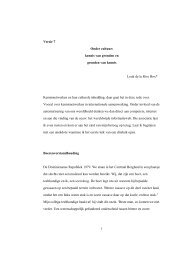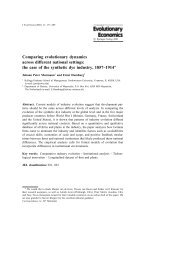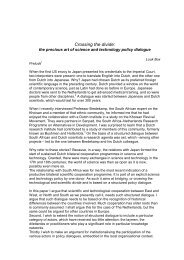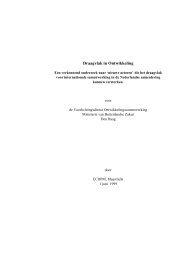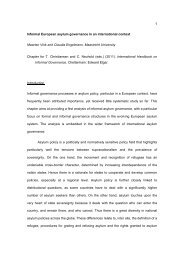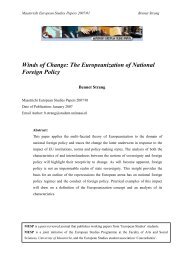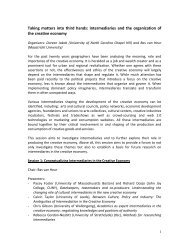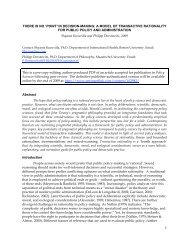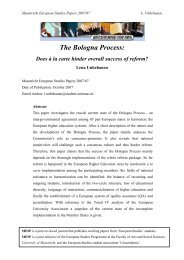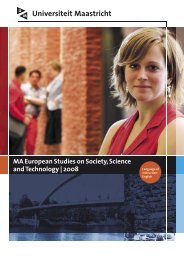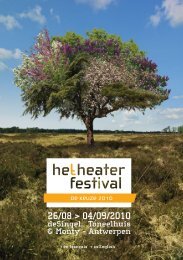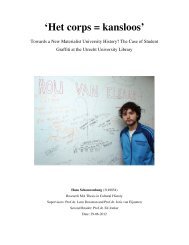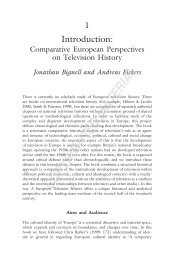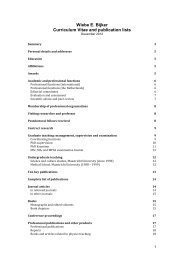About the Journal - Cities Institute
About the Journal - Cities Institute
About the Journal - Cities Institute
Create successful ePaper yourself
Turn your PDF publications into a flip-book with our unique Google optimized e-Paper software.
for what ostensibly are key components of <strong>the</strong> new knowledge and experience<br />
economy through <strong>the</strong> creative industries and tourism, which include cultural and<br />
sporting events, leisure retail and associated advanced producer services.<br />
In many respects <strong>the</strong> culture and regeneration phenomenon and European project<br />
rolls on (Evans and Shaw, 2006), as does <strong>the</strong> impact study and „evidence-based<br />
policy‟ regime - not least in London2012‟s Legacy Evaluation programme with a<br />
maze of parallel impact studies and meta-evaluations - at least six - by international,<br />
national and regional agencies (LDA, 2009). However in terms of cultural and<br />
community development, <strong>the</strong> regeneration project and event city looks both tired<br />
and dated. A move towards cultural planning (Evans, 2008) as a process of assessing<br />
need and demand through cultural mapping of activity, facilities and cultural assets<br />
and genuine consultation - underpinned by perhaps more rigorous understanding of<br />
people, place and participation - would seem to better situate <strong>the</strong> festival within<br />
changing social, economic and physical landscapes and better locate <strong>the</strong><br />
extraordinary in <strong>the</strong> everyday, and vice versa. In this sense: „a cultural planning<br />
approach goes way beyond simply attending performances, exhibitions, or cultural<br />
events. Cultural planning delivers access to, ownership of and participation in<br />
appropriate developmental cultural activities ... and contributes to <strong>the</strong> building of<br />
civil society; developing citizens and promoting citizenship‟ (fablevision.org, in Evans,<br />
2008).<br />
As <strong>the</strong> next event and „Year of...‟ proceeds and past events recede into<br />
fragmented and official memories, it seems important to take <strong>the</strong> time to stop and<br />
ask <strong>the</strong> question - what do we mean by a city of culture and a „former‟ city of<br />
culture? - is this a case of „dependency culture‟ (and does this matter), or is it<br />
important to have „something to call our own‟? As Raymond Williams suggested in<br />
his Long Revolution (1961), introducing change and exposure to new practices over<br />
time was a route to lasting cultural development (and cultural democracy). This<br />
incremental, transformative and inclusive approach needs to be central to <strong>the</strong><br />
festivalisation agenda and <strong>the</strong> measurement of its effects, over time.<br />
References<br />
Bagwell, S., Foord, J. and Evans, G.L. (2009). City growth strategy and creative<br />
clusters in London‟s city fringe: From cultural quarter to creative subregion?<br />
Paper presented at <strong>the</strong> Regional Studies Association‟s Seminar Series,<br />
Creative Industries and Regional Policies: Making Space and Giving Space.<br />
Birmingham. Retrieved from http://www.creativeregions.eu/uploads/6/1/6/6/6166614/bagwell_foord_evans.pdf<br />
Bailey, C. Miles, S.D. and Stark, P. (2004). Culture-led urban regeneration and <strong>the</strong><br />
revitalisation of identities in Newcastle, Gateshead and <strong>the</strong> north east of<br />
England. International <strong>Journal</strong> of Cultural Policy 10 (1), 47-65.<br />
Boyko, C. T. (2008). Breathing new life into old places through culture: A case of bad<br />
breath?‟ In G.Richards and J.Wilson (Eds.) From cultural tourism to creative<br />
tourism: changing places, <strong>the</strong> spatial challenge of creativity (Part 3, pp. 19-<br />
15



